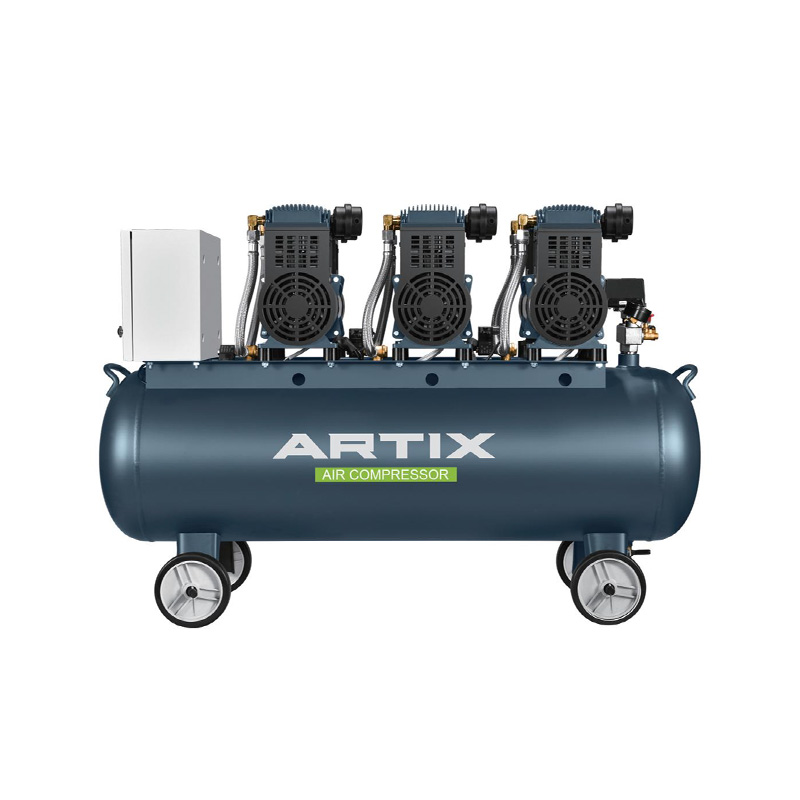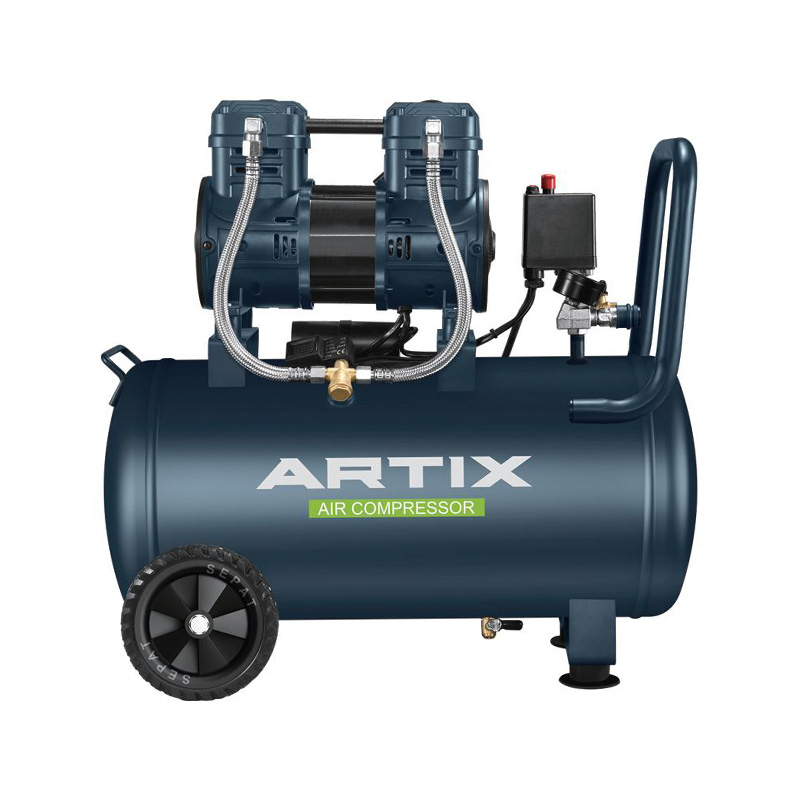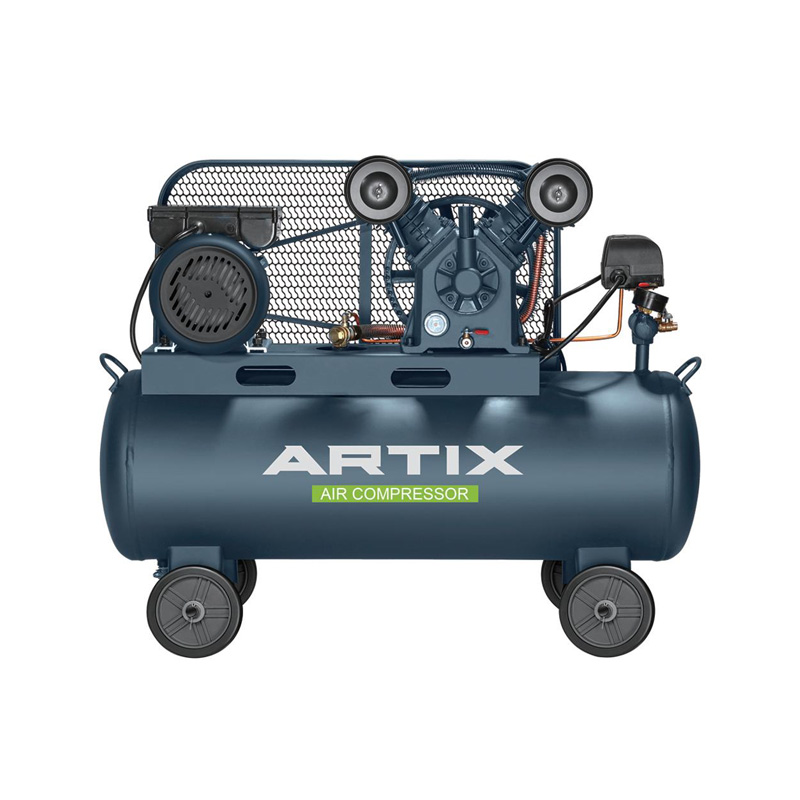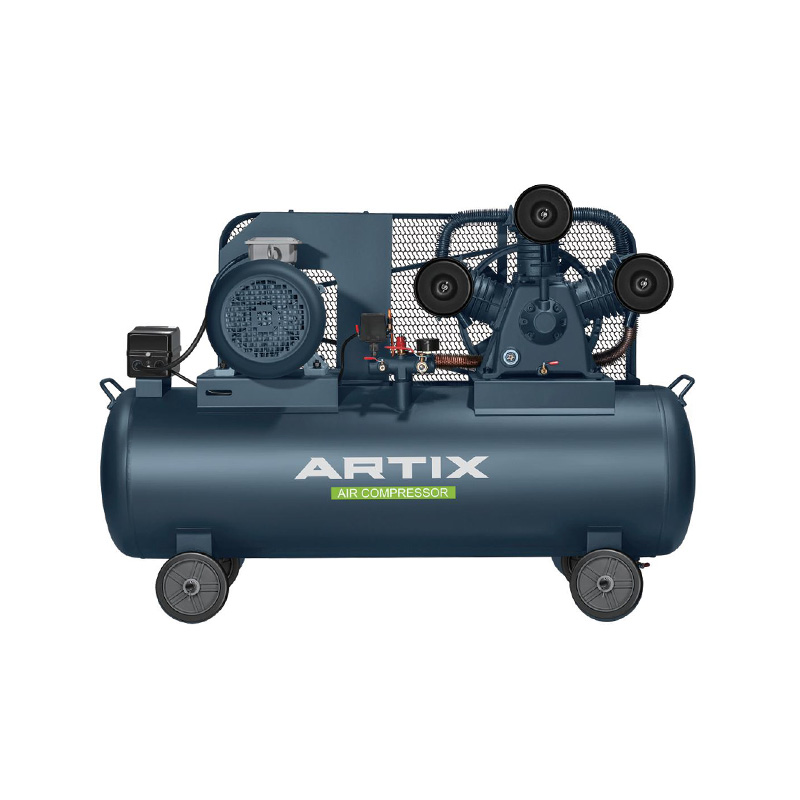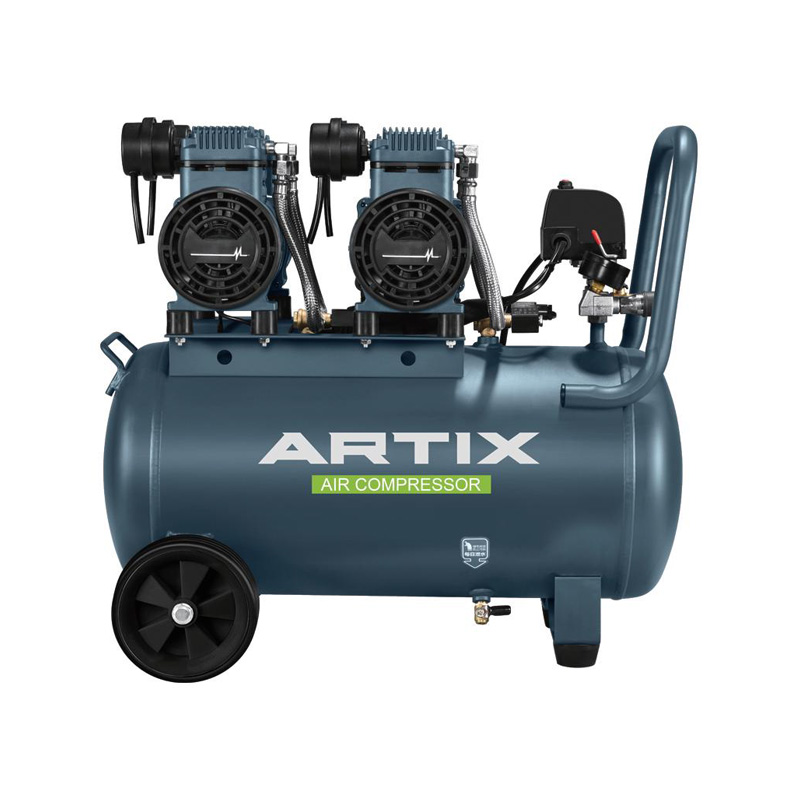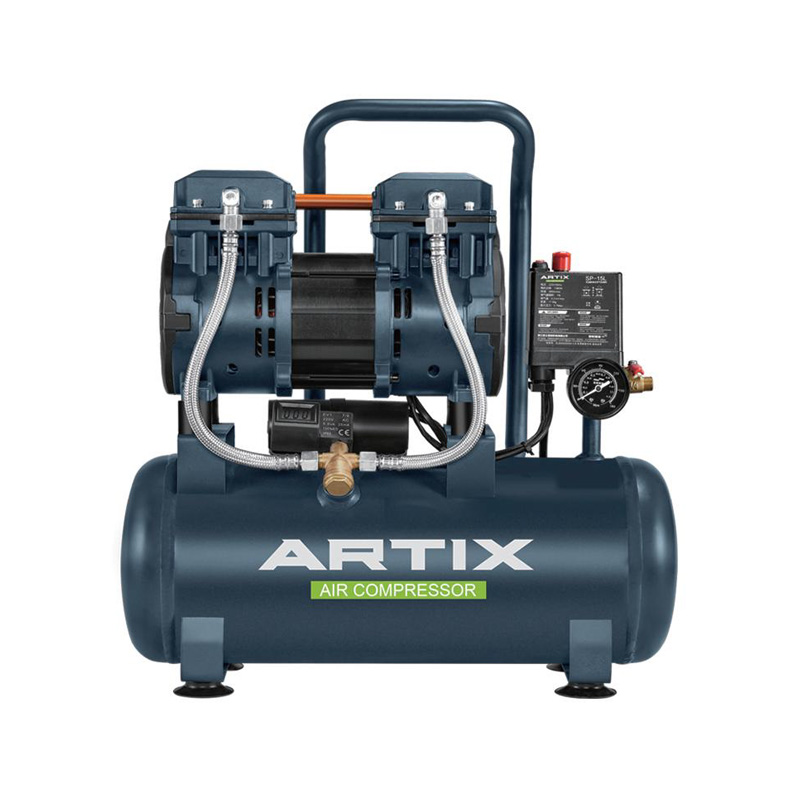Oil-free air compressors have gained popularity due to their clean and efficient operation, especially in environments where oil contamination must be less, such as food processing, pharmaceutical industries, and clean rooms. Among the different types of oil-free air compressors, the automatic air compressor machine, oil free reciprocating compressor, and the 24L silent air compressor are often chosen for their efficiency, reliability, and quieter operation. To ensure the longevity and consistent performance of these compressors, regular maintenance is essential. Below are some key maintenance tips to help keep your oil-free air compressor running smoothly.
1. Regular Cleaning and Inspection
Air compressors, including automatic air compressor machines, work by drawing in ambient air. Over time, dust, dirt, and other debris can accumulate inside the compressor unit, which can advance to clogging or damage to internal components. Regular cleaning is vital to prevent this buildup. For the oil free reciprocating compressor, you should inspect the air filter regularly and clean it as necessary. If the filter is damaged or excessively dirty, it should be replaced to ensure clean air intake and prevent strain on the compressor.
Additionally, inspect the external parts of the compressor for signs of wear or leaks. Tighten any loose bolts, screws, or fasteners to avoid vibrations that could advance to further damage or noise. A 24L silent air compressor model, while quieter, is still subject to the same wear and tear, and routine inspection can help prevent more significant problems.
2. Monitor and Maintain Air Pressure
Maintaining the correct air pressure is crucial for the efficiency and effectiveness of your oil-free air compressor. Check the pressure gauge regularly to ensure the compressor is operating within the recommended pressure range. Both automatic air compressor machines and oil free reciprocating compressors are designed to work ideal at specific pressure levels. Operating outside these parameters can result in overloading the motor or wasting energy.
If your compressor is consistently running at a pressure higher than needed, consider adjusting the pressure settings. This will not only improve energy efficiency but also prolong the lifespan of your compressor. For 24L silent air compressors, it’s important to monitor air pressure during operation as excessive pressure could advance to overheating, particularly in smaller units.
3. Keep the Cooling System in Good Condition
Oil-free air compressors, especially automatic air compressor machines, rely on efficient cooling to maintain their performance. If the cooling system becomes clogged or fails, the compressor can overheat, causing potential damage to internal components. For reciprocating compressors, air or water-cooled systems are common, and keeping the cooling fins or radiator clean is crucial.
Regularly inspect the cooling fins and ensure they are free from debris. In some models, such as the 24L silent air compressor, cooling fans may accumulate dust, which can obstruct airflow. Cleaning these components will help maintain an adequate temperature and prevent overheating, which can significantly shorten the lifespan of the compressor.
4. Check for Leaks
Air leaks are one of the more common issues in air compressors. Even minor leaks can advance to a significant reduction in efficiency and increased energy consumption. To identify leaks, perform a routine check of all hoses, fittings, and seals. For oil free reciprocating compressors, check the cylinder heads and valve seals regularly, as leaks can often occur in these areas.
If a leak is detected, it should be repaired immediately. Ignoring a leak can advance to more severe issues, including system inefficiency, increased wear, or complete compressor failure. For automatic air compressor machines, advanced sensors and monitoring systems might help detect leaks early, allowing for prompt repairs.
5. Oil-Free Compressor Lubrication and Seals
Although oil-free air compressors don’t require traditional oil lubrication, they still have moving parts that need attention. more oil free reciprocating compressors rely on seals and bearings that should be checked regularly. Over time, these parts can wear out or dry out, pilot to decreased performance. Regularly lubricating the moving parts with the recommended lubricant is important to prevent friction and wear.
The 24L silent air compressor, while designed for quieter operation, still requires attention to the internal components to ensure smooth operation. For example, the diaphragm and piston in reciprocating compressors should be inspected for wear, and any seals that appear worn or cracked should be replaced promptly.
6. Check and Replace the Pressure Switch
The pressure switch controls the operation of the compressor by turning it on or off based on the preset pressure settings. Over time, the pressure switch can wear out or malfunction, which may advance to improper cycling or failure to start. It is a good idea to periodically check the pressure switch to ensure it’s functioning correctly.
If you notice that the compressor is not cycling properly or taking longer to start, the pressure switch may need to be recalibrated or replaced. The automatic air compressor machine typically has a built-in safety feature to prevent over-pressurization, but regular checks can ensure its reliability.
7. Inspect and Replace the Belt (if applicable)
Some oil-free air compressors, such as certain models of the oil free reciprocating compressor, use belts to drive the compressor’s pump. These belts can wear out over time due to friction and should be inspected for any signs of damage, fraying, or excessive slack. A worn-out belt can reduce the efficiency of the compressor and cause unnecessary strain on the motor.
